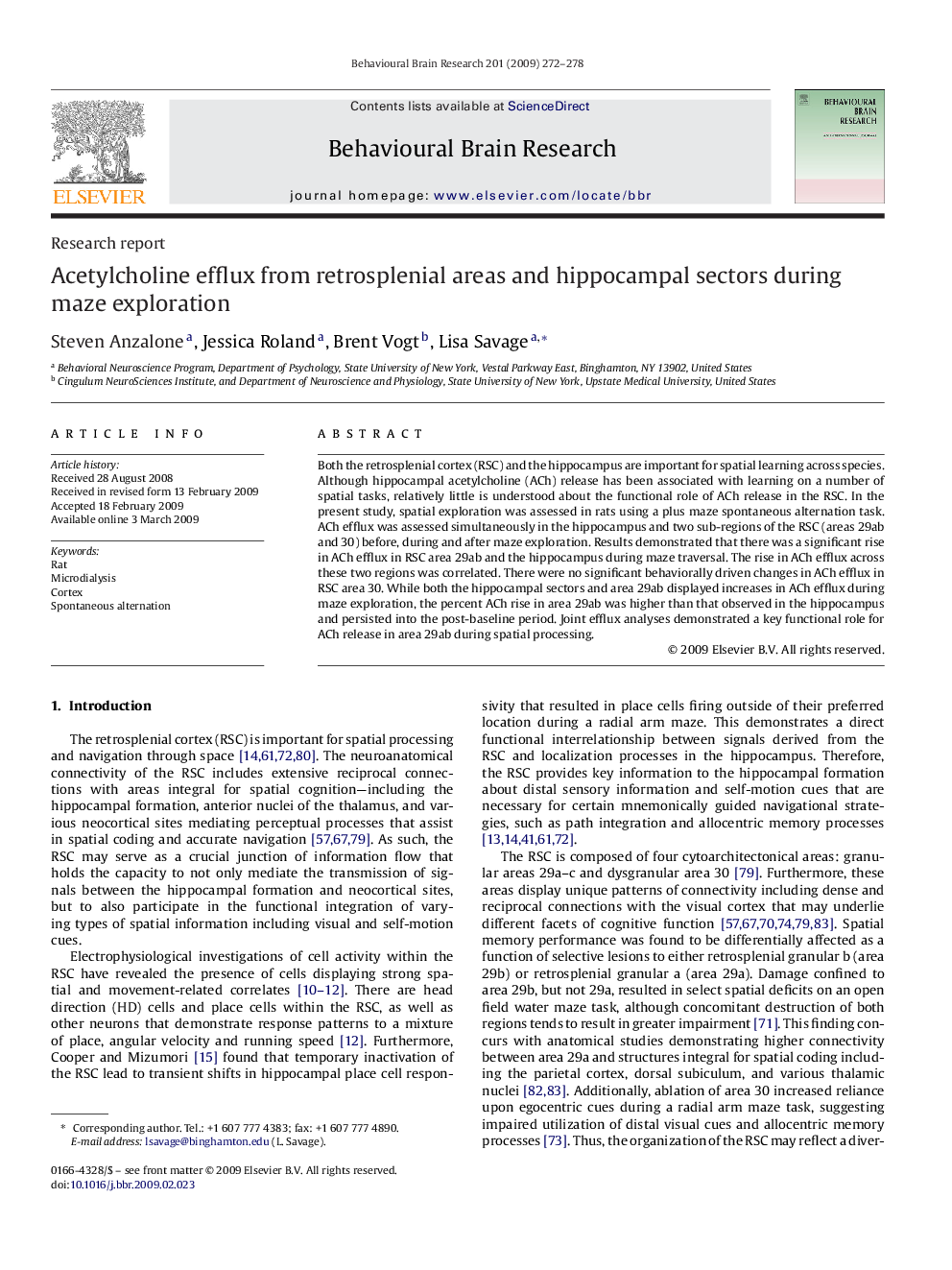| Article ID | Journal | Published Year | Pages | File Type |
|---|---|---|---|---|
| 4314718 | Behavioural Brain Research | 2009 | 7 Pages |
Both the retrosplenial cortex (RSC) and the hippocampus are important for spatial learning across species. Although hippocampal acetylcholine (ACh) release has been associated with learning on a number of spatial tasks, relatively little is understood about the functional role of ACh release in the RSC. In the present study, spatial exploration was assessed in rats using a plus maze spontaneous alternation task. ACh efflux was assessed simultaneously in the hippocampus and two sub-regions of the RSC (areas 29ab and 30) before, during and after maze exploration. Results demonstrated that there was a significant rise in ACh efflux in RSC area 29ab and the hippocampus during maze traversal. The rise in ACh efflux across these two regions was correlated. There were no significant behaviorally driven changes in ACh efflux in RSC area 30. While both the hippocampal sectors and area 29ab displayed increases in ACh efflux during maze exploration, the percent ACh rise in area 29ab was higher than that observed in the hippocampus and persisted into the post-baseline period. Joint efflux analyses demonstrated a key functional role for ACh release in area 29ab during spatial processing.
